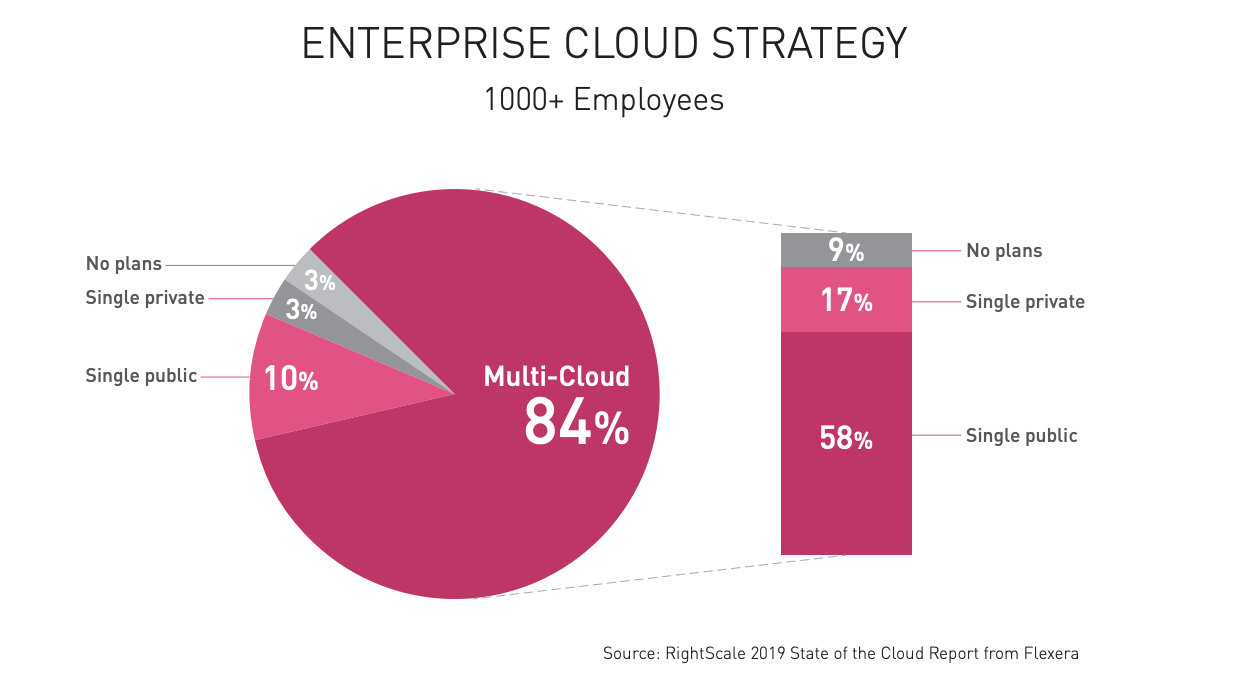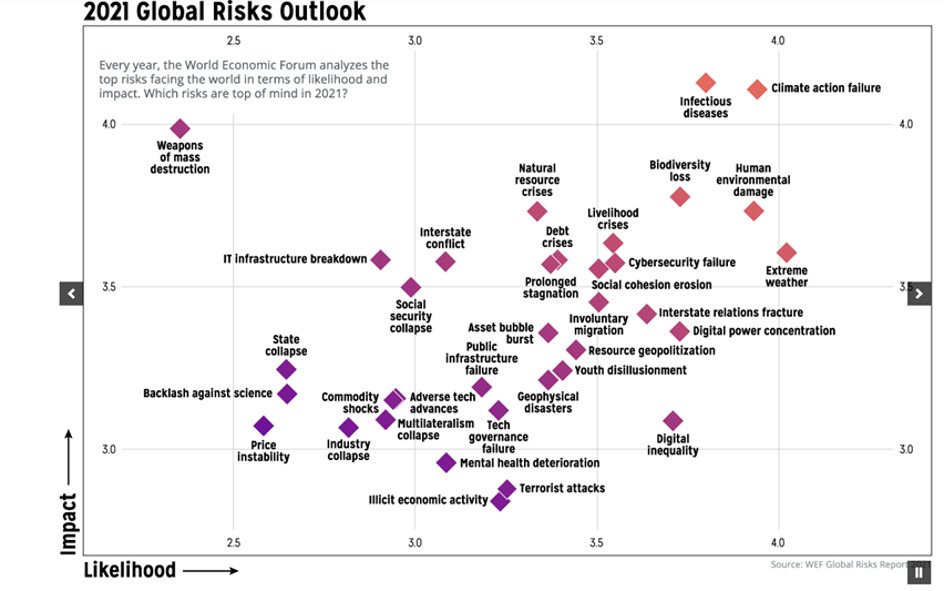Cloud computing adoption is close to universal across organizations of all sizes: 94% of survey respondents reported that their organization uses the public cloud. We also see that enterprises continue to embrace hybrid and multi-cloud strategies. Hybrid cloud adoption has grown from 51% to 58%, and multi-cloud adoption increased from 81% to 84% over the previous year. Business agility, productivity, operational efficiency, flexibility, and profitability are undoubtedly the key drivers behind enterprise public cloud adoption. The public cloud allows compute-storage-network resources to be acquired and deployed more rapidly. Once deployed, these resources can be scaled up or down as needed to meet organization's demand.
Two forces are colliding head-to-head in today's world of IT Infrastructure. One is the ever evolving, agile andinexorable adoption of public cloud. The other is rapidly heightening sensitivity and awareness of the global data threat environment, which predictably has called into question the security of public cloud.
Cyber Security failure is no longer a concern raised by individuals rather it has been classified as a top threat by World Economic Forum in their "Risk Outlook Report for 2021".
Cloud security remains a top concern. This is not surprising when we consider that public cloud services are shared, always connected, and dynamic by nature.
In fact, the majority of cloud breaches can be traced back to simple human errors rather than concerted attacks. For example, research shows that as many as 10,000 businesses are vulnerable due to a widespread setting misconfiguration in Google Groups. On one hand, these are alarming statistics.
Thus the need for a Security solution to create a virtual perimeter around the cloud environment is imminent. Not only does it provide visibility into the current transactions, it helps the organization visualize the flow of traffic and deploy rules to block unwanted access.
Cloud Network Security solution essentials:
- Scalability: Organizations can adjust the size of their security solution without the frustrations inherent with on-site installation, maintenance and upgrading. As bandwidth increases, cloud firewalls can automatically adjust to maintain parity. For example, distributed denial-of-service (DDoS) attacks can be mitigated without having to worry about bandwidth limits.
- Availability: Cloud firewall providers account for the built-in cost of high availability by supporting infrastructure. This means guaranteeing redundant power, HVAC, and network services, and automating backup strategies in the event of a site failure. Necessary updates can also be implemented immediately, without the need for large system downloads or updates.
- Extensibility: Cloud firewalls can be reached and installed anywhere an organization can provide a protected network communication path.
- Migration Security: A cloud firewall is capable of filtering traffic from a variety of sources; the internet, between virtual networks, between tenants, or even a virtual data center. It’s capable of guaranteeing the security of connections made between physical data centers and the cloud.
- Secure Access Parity: Advanced access policy, connection management, and filtering between clients and the cloud. An encrypted & secure medium to secure access to cloud infrastructure.
- Identity Protection: Integrate with access control providers and give users granular control over filtering tools.
- Performance Management: Cloud firewalls provide tools for controlling performance, visibility, usage, configuration, and logging.
NGS's Network Security solution delivers advanced threat prevention for your public, private and hybrid-clouds, as well as efficient and consistent unified security management of clouds and on-premises networks with a single pane-of-glass.
Following are the key components of the offering:
- Firewall
- Intrusion prevention system
- Anti-Bot
- Anti-Virus
- URL Filtering
- Application Control
- Zero Day Protection
- Multi-Cloud Deployments
- Unified management


